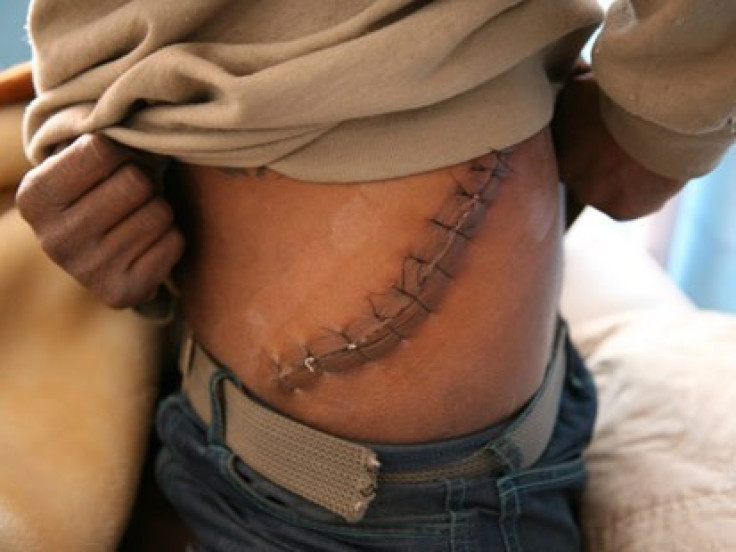'Donate a Kidney, Buy the New iPad' - Human Organ Traffickers Target Asia's Poorest

The illegal trade in kidneys is increasing, following a rise in diabetes and other diseases, according to reports.
Organised gangs and criminals are increasingly defying laws and using bolder moves as the price for organs such as kidneys can fetch up to £128,000, the Guardian reported.
Criminal networks harvest the organs from the poorest and most vulnerable, using deception, violence and coercion.
Organs are sold to rich clients who often head to countries such as China, India or Pakistan for surgery. The number of patients undergoing such operations is estimated to be about 10,000 a year.
Donors receive up to $5,000 (£3,100), the report claims, making the trade a very lucrative business for traffickers.
Criminals and doctors work hand in hand.
The Guardian even got in touch with an organ seller based in China who advertised his services under the slogan "Donate a kidney, buy the new iPad".
The man went on to say he would pay the organ donor £2,500 and could arrange for an operation to take place within two weeks.
Despite several measures to curb trafficking the new trend shows that criminals are still able to exploit the shortage of organs and turn it into a lucrative business.
"The illegal trade worldwide was falling back in about 2006-07 - there was a decrease in 'transplant tourism'," Luc Noel, a WHO official, who monitors the black market for organ donations, said
"The trade may well be increasing again. There have been recent signs that that may well be the case.
"There is a growing need for transplants and big profits to be made. It's eve- growing, it's a constant struggle. The stakes are so big, the profit that can be made so huge, that the temptation is out there," he added.
Data collected from WHO showed 106,879 organs had been legally and illegally transplanted in 95 member states in 2010 and according to Noel one in 10 could be harvested illegally.
Jim Feehally, a professor of renal medicine at University Hospitals of Leicester NHS trust, told the Guardian: "We know of countries in Asia, and also in eastern Europe, which provide a market so that people who need a kidney can go there and buy one.
"The people who gain are the rich transplant patients who can afford to buy a kidney, the doctors and hospital administrators, and the middlemen, the traffickers. It's absolutely wrong, morally wrong."
© Copyright IBTimes 2024. All rights reserved.





